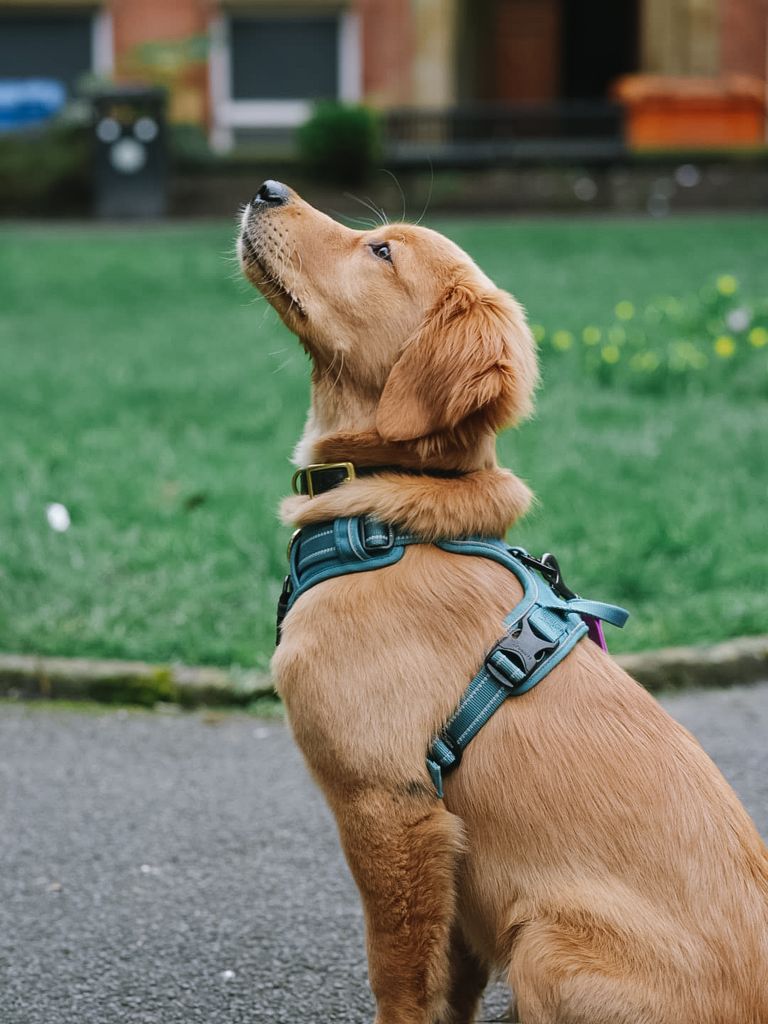Assistance Dogs | Puppy Training | Dog Walking
Didn't work? Enter your email address below and we will send an exclusive discount code straight to your inbox!
Interested in booking a session for your dog?
Please email me at fivesensesdogtraining@gmail.com to get in touch.
BIKER GIRL DOG TRAINER
I am partnered with Olivia who is positive reinforcement trainer, specialising in reactivity. She can also help with other more complicated, ingrained behaviours; such as aggression, separation anxiety and resource guarding.
You'll often find me often working at her puppy classes at Bramhall Methodist Church on Saturdays. To find out more/book see here.
Services for Pet Dogs
Book your session in Knutsford, Stockport or Manchester City Centre.
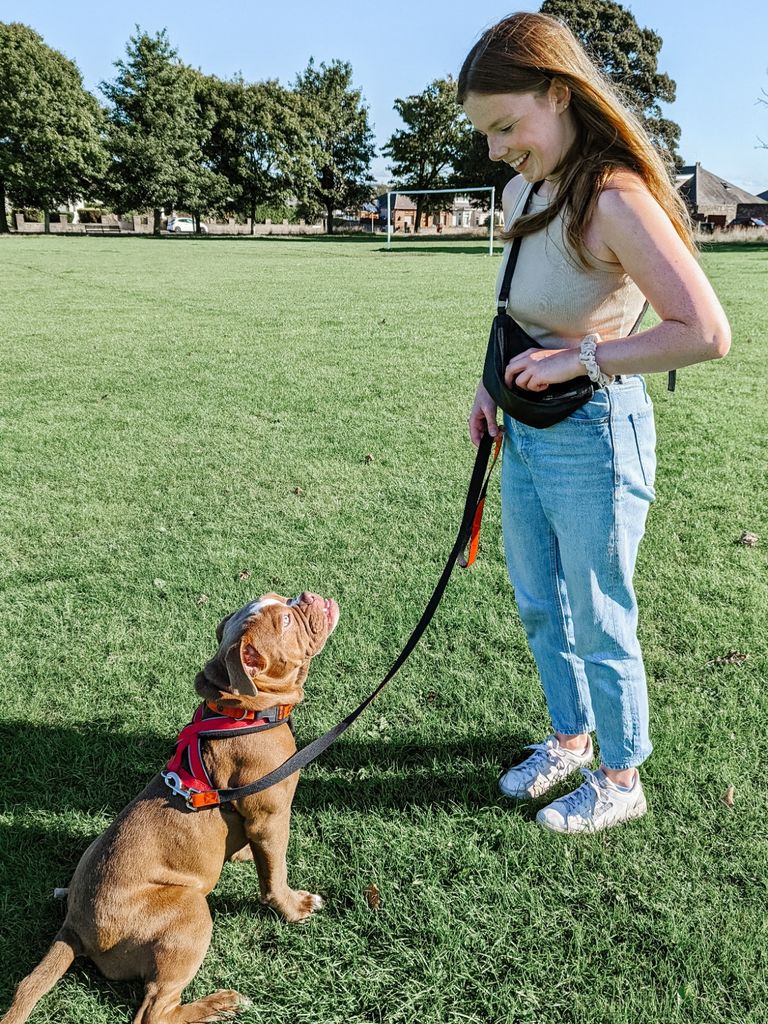
In Person (1-2-1) Dog Training Sessions
£60 / hour
Is your dog pulling on the lead, destroying items they shouldn't be, or needing obedience training?
I can help with this (and more!). In Person sessions are tailored to your individual needs and are perfect for helping your dog advance their obedience skills and overcome a range of problems.
You will gain a deeper understanding of why your dog is behaving the way they are and learn how to address their behaviour using ethical techniques which help strengthen your bond.
A follow up report is provided with homework to aid your practice. You will also have access to ongoing support via text or email.
SERVICES
I serve Knutsford and beyond, offering dog walking, dog training, pet sitting and more. Read more about my services below.

Puppy Classes
Puppy Classes run every Saturday at Bramhall Methodist church. You can learn more and sign up by following the link below.
Services for Pet Dogs
Book your session in Knutsford or Manchester City Centre.
Group Classes
£25 / 1 hour
I am partnered with Olivia at Biker Girl Dog Trainer who has spaces available at her puppy classes! These run every Saturday in Bramhall Methodist Church.
Olivia is an experienced Canine Behaviorist whose classes are designed to help you have a calm, confident puppy. She covers not only dog training essentials and obedience, but also helps you understand your dog's behaviour.
Groups are small to ensure you receive support and are delivered in blocks of 5.
There is no upper age limit, so dogs of all ages are welcome.
For more information, please click here.
Assistance Dog Membership
Five Senses Dog Training offers training and support for owner trained assistance dogs.
Assistance Dogs are trained to support their handlers by carrying out tasks tailored to their needs, for example by performing deep pressure therapy, interrupting flashbacks or retrieving medication.
The service is flexible, allowing you and your dog to work at your own pace towards becoming a fully qualified team. Full support and guidance is provided to help you achieve this using modern, safe, reward-based methods of dog training.
You will receive 1-2-1 support, taking into account your disability and personal circumstances in order to provide a service tailored to the individual needs of you and your dog.
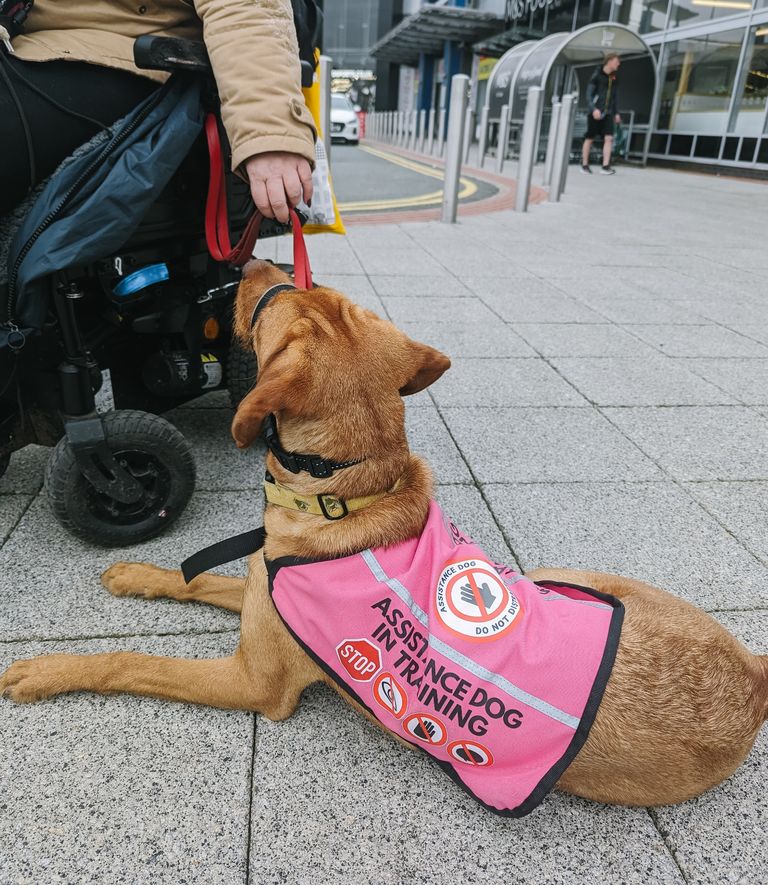
In Person Membership
£20 per month
- 1 hour in person session in/around Manchester City Centre.
- Tailored programme to your individual needs.
- Ongoing personal support, feedback and guidance.
- Session notes, after every session, to track your progress and increase motivation.
- Access issue support.
- In Person Public Access Tests are available to teams which have reached an adequate level of training.
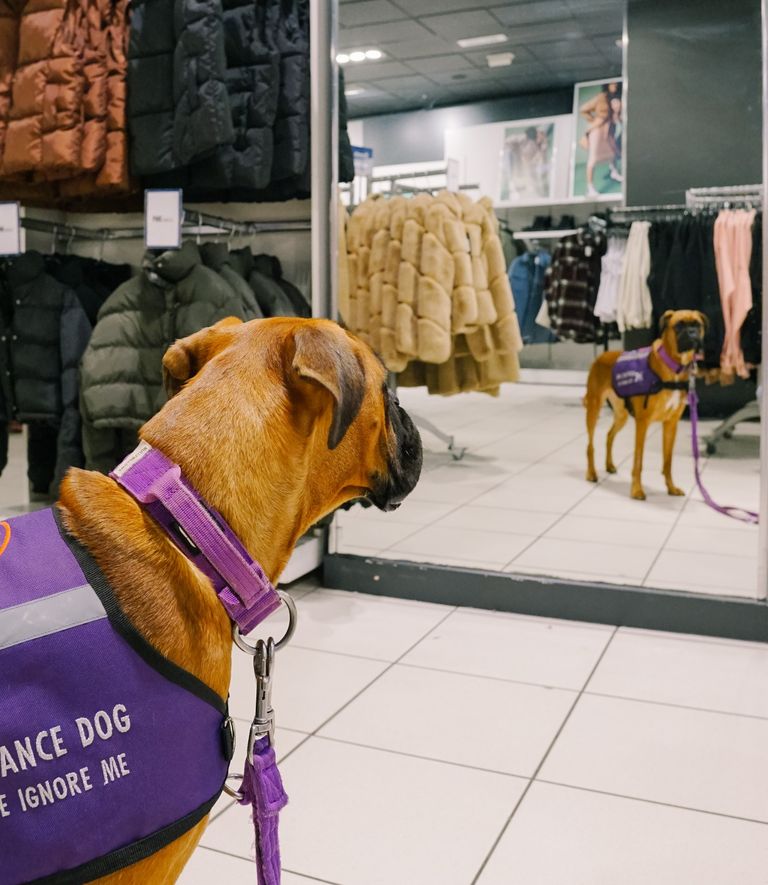
Online Membership
£20 per month
- Two online video calls per month (up to 30 minutes each).
- Tailored programme to your individual needs.
- Ongoing personal support, feedback and guidance.
- Access issue support.
- Video tutorials can be requested.
- Session notes, after every session, to track your progress and increase motivation.
- In Person Public Access Tests are available to teams which have reached an adequate level of training.
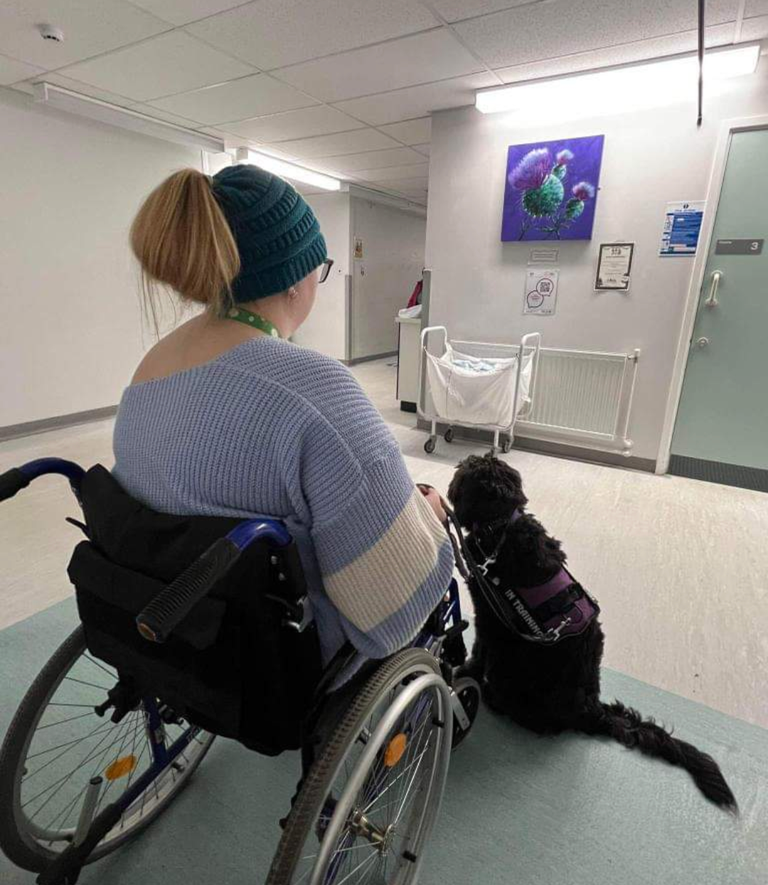
Add-On Sessions
Discounted prices
- In Person Sessions: £20 / hour
- Dog Walking: £15 / hour
- Online Sessions: £10 / 30 minutes
Group Classes
Are you looking for more support on your AD journey? Why don't you consider joining our Assistance Dog Group Classes in Altrincham, Manchester?
Classes are run by two qualified and insured dog trainers. Click the link below to find out more and register your interest.
Services for Pet Dogs

In Person (1-2-1) Sessions
£40 / hour
Is your dog pulling on the lead, destroying items they shouldn't be, or needing obedience training?
I can help with this (and more)! In Person sessions are tailored to your individual needs and are perfect for helping your dog advance their obedience skills and overcome a range of problems.
You will gain a deeper understanding of why your dog is behaving the way they are and learn how to address their behaviour using ethical techniques which help strengthen your bond.
A follow up report is provided with homework to aid your practice. You will also have access to ongoing support via text or email.
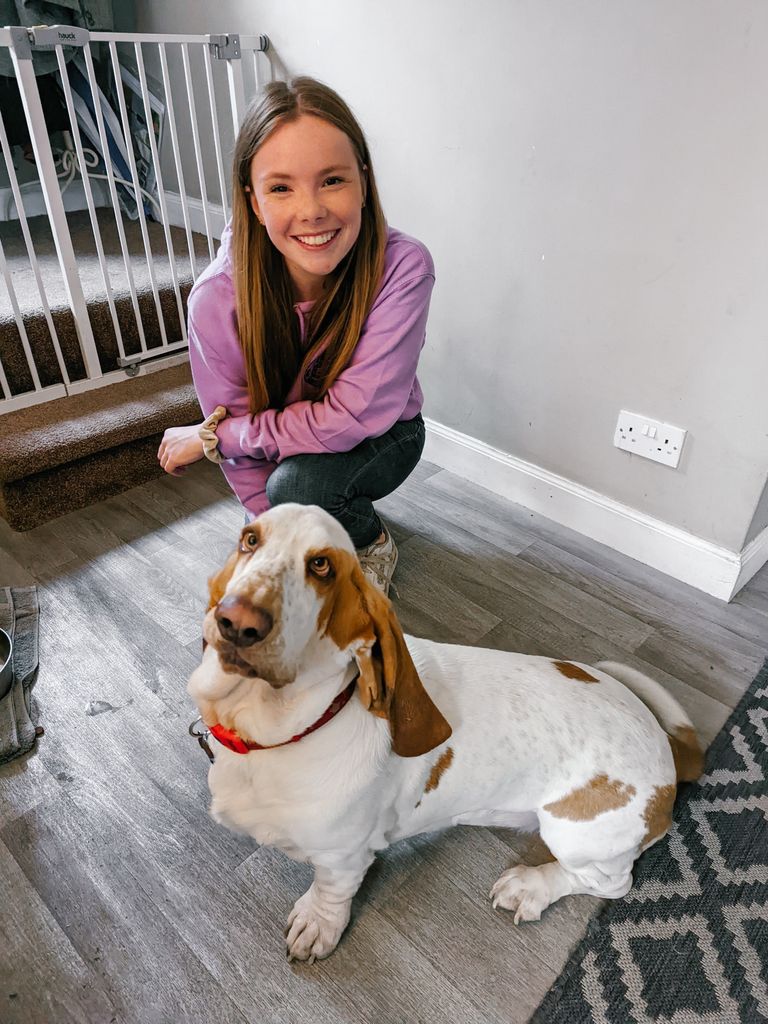
Online Sessions
£10 / 30 minutes
Are you located out of my catchment area or looking for some quick tips on your dogs training issue?
Online training sessions are perfect if you're looking for long-lasting results in relation to basic training issues such as toilet training or recall.
These sessions can be delivered via video or phone call.
As a follow up, you will receive session notes to aid your practice and keep track of your progress.
Group Classes
£25 / 1 hour
I am partnered with Olivia at Biker Girl Dog Trainer who has spaces available at her puppy classes! These run every Saturday in Bramhall Methodist Church.
Olivia is an experienced Canine Behaviorist whose classes are designed to help you have a calm, confident puppy. She covers not only dog training essentials and obedience, but also helps you understand your dog's behaviour.
Groups are small to ensure you receive support and are delivered in blocks of 5.
There is no upper age limit, so dogs of all ages are welcome.
For more information, please click here.

Puppy Packages
*Coming Soon*
Getting a new puppy is an exciting, but daunting, experience.
With lots of conflicting advice online, it can be difficult to know who and what to trust.
My puppy package provides 1-2-1 guidance on key elements of puppy development including socialisation, habitation, decensitisation and the prevention of behavioural issues.
Having previously worked as a Research Assistant, I have a passion for studying science in order to provide you with the latest, most ethical and effective dog training solutions.
Services for Pet Dogs
I offer dog training, puppy classes and dog walking in Manchester and online at affordable prices.

In Person Sessions
£40 / hour
Is your dog pulling on the lead, destroying items they shouldn't be, or needing obedience training?
I can help with this (and more)! In Person sessions are tailored to your individual needs and are perfect for helping your dog advance their obedience skills and overcome a range of problems.
You will gain a deeper understanding of why your dog is behaving the way they are and learn how to address their behaviour using ethical techniques which help strengthen your bond.
A follow up report is provided with homework to aid your practice. You will also have access to ongoing support via text or email.

Dog Walking
£20 / hour (or £15 / hour when booking a block of 5)
Would you like someone to walk your dog while you're at work?
These sessions are designed with busy people in mind.
I collect your dog and take them for a walk to a park in the local area (M1-M4 postal areas).
Throughout the walk I'll send regular photos and videos of your dog, so you can keep updated with their adventures!

Online Sessions
£10 / 30 minutes
Would you prefer online training?
Online training sessions are perfect if you're looking for long-lasting results in relation to a basic training issues such as toilet training or recall.
These sessions can be delivered via video or telephone call.
As a follow up to the session, you will receive session notes to aid your practice and keep track of progress.

Group Classes
£25/1 hour
Group classes are delivered in blocks of 5.
My focus is twofold:
Firstly, I aim to help you better understand how dogs learn and use their five senses to navigate the world. Understanding our dogs behaviour can help prevent behavioural issues from developing, and we will cover a few of these in class including resource guarding and separation anxiety.
I also equip you with practical skills to help your dog learn loose lead walking, better focus, recall away from distractions...and more!
NEW! Violet Bloom Collar
Strong and luxurious, the Violet Bloom Collar is made with the softest velvet fabric


